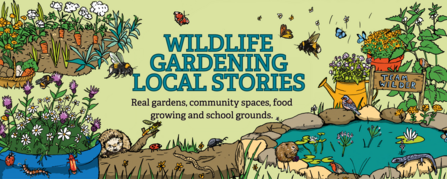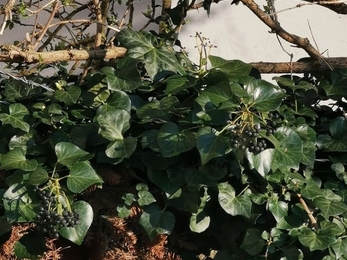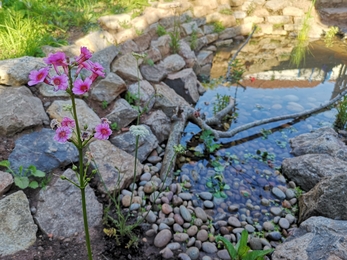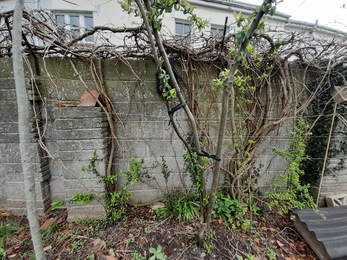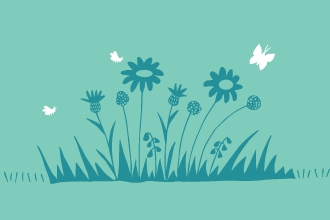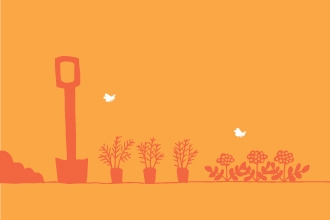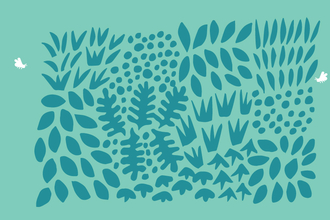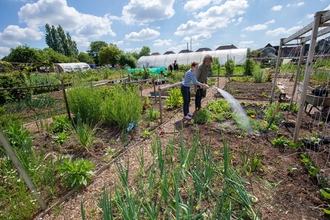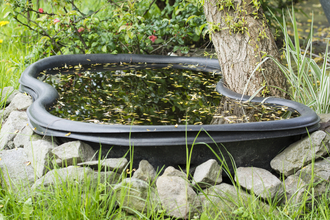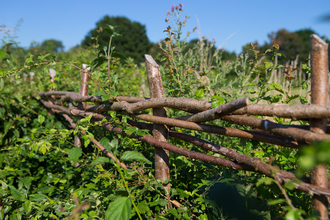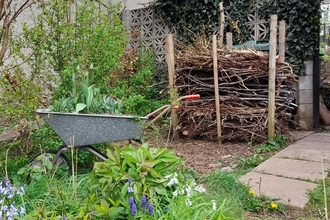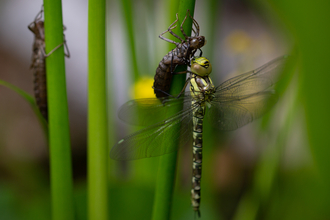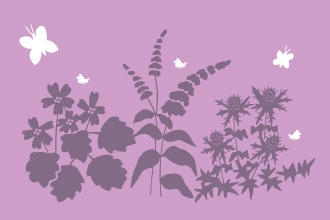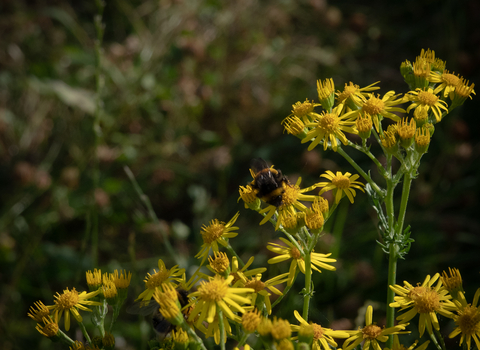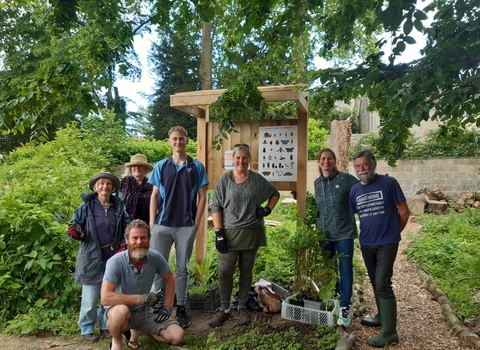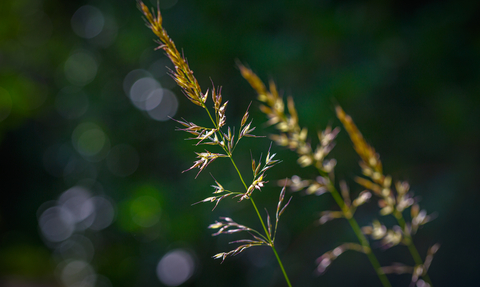
Grass Seed Heads Meadow Stephanie Chadwick
Wildlife Gardening
Do your bit for Nature at home
Wildlife gardening is a way of encouraging and helping wildlife to thrive. You don't need masses of space - containers and window boxes count, so does leaving just a small patch in your garden to go wild. It is creating a haven for you and for wildlife. There are many sustainable practices and natural solutions to choose from and try out.
Beauty is in the eye of the beholder and wildlife gardens can be stunning! Even the Chelsea Flower Show thinks so. They're full of life, they're practical and sustainable and best of all – low maintenance!
Although every species has its own specialist requirements, a good first step is to ensure you provide four key resources:
food, water, shelter and breeding space.
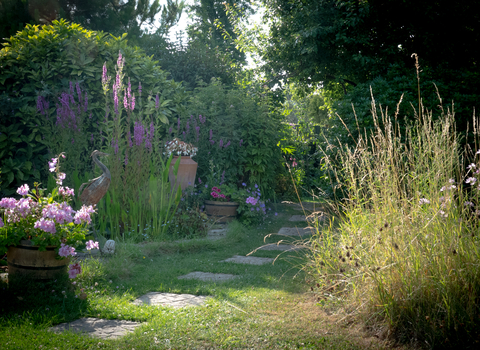
Stephanie Chadwick
Food
This can be for you and wildlife!
- Forest garden – fruit trees, berries
- Pollinator friendly plants, nectar rich plants, butterfly garden
- Bird Feeders
- Leave food out for hedgehogs
- Vegetable patch or containers
- Wild patch – grasses, nettles, dandelions, daisies, native wild flowers
- Go pesticide free
TIP: Avoid pesticides, with a healthy wildlife garden, nature does pest control for you.
LEARN MORE:
Wildflower Suggestions from Grow WilderNectar rich plants
Wildlife Friendly Vegetable Gardening TipsCompanion Planting
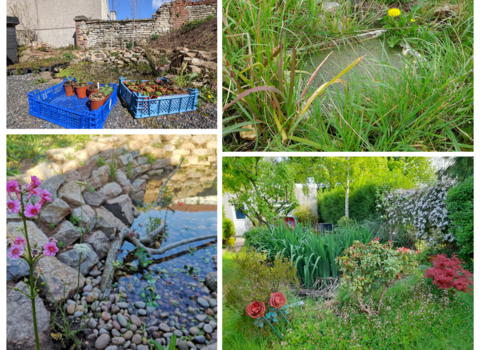
Sophie Bancroft, Tom Wilmott
Water
One of the best things you can do to support wildlife is by adding a pond
- Mini Pond
- Pond with no fish
- Bog garden
- Leave a water dish out at ground level to support smaller visiting mammals
- Bird bath
TIP: Grow Wilder has a wildflower nursery with plenty of pond and blog plants for sale and also growing on display around the site.
TIP: You can add water to your garden with old bowls, pots etc
LEARN MORE:
Our experience of Creating & Maintaining Ponds Provide water for wildlife
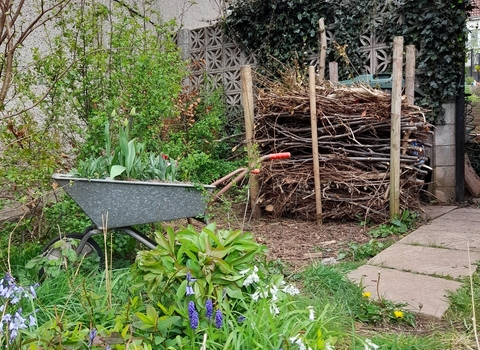
Shelter
Consider the following options when providing shelter for wildlife:
-
Log pile or tree stumps, rock/stone pile, bug hotel
-
Deadhedges and natural barriers including hedges and climbing plants on walls/fences
-
Wildflower area or container, leaving the grass to grow long in some areas
-
Bird box or bat box
-
Bee hotel
-
Hedgehog house
-
Mature trees
TIP: Ensure you have shelters placed in both sunny and shaded spots to cater for different species
LEARN MORE:
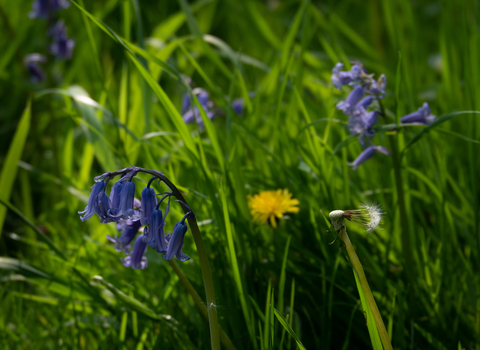
Stephanie Chadwick
Be Sustainable
Sustainable, sensible gardening has to be the way forward.
- Use peat free compost or make your own
- Don't use pesticides as nature finds a way
- A water butt will save on resources
- Recycling garden materials allows you to create things like deadhedges.
LEARN MORE:
We’re in this together…
Literally from a birds eye view, all gardens are connected to each other and also to the surrounding open spaces. Wildlife needs connected areas to evolve and survive - this can be done on large and small scale areas.
- Consider mixed native hedges for boarders, instead of fences and walls for wildlife to move and feed more freely.
- Where fences exist, hedgehog highways can be created with small holes.
- Create corridors on your street to connect nature.
- Speak to neighbours about swapping seeds, plants, advice and encouragement for wildlife gardening, join a local group or set one up.
- By noticing wildlife in local open spaces and sharing sightings, you will encourage interest in the importance of local wildlife and habitats.
Resources
See below for resources and how to's related to wildlife gardening, including a video from Esther, the Team Wilder Community Ecologist.
The Team Wilder Ecological Advisory Service (TWEAS) is free to residents and community groups in Avon - find out more and book a slot.
Team Wilder Ecological Advisory Service (TWEAS)
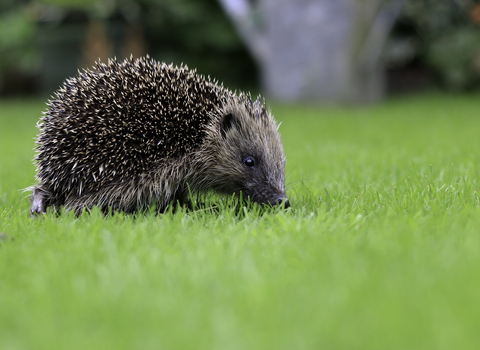
Tom Marshall
Be part of Team Wilder
All actions for nature collectively add up and creates life for people and wildlife.
Share your actions for nature, like Tom by sharing and tagging @avonwt on social media and
Log your actions for nature on the map

